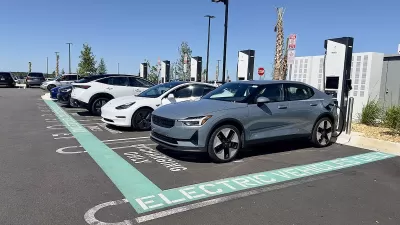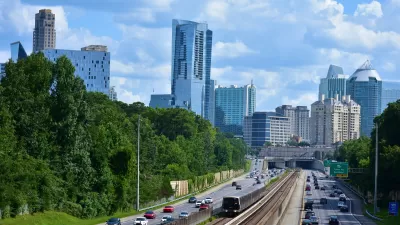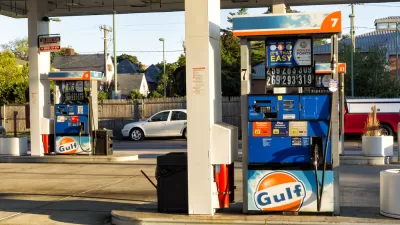The transportation reauthorization bill will be hotly debated this fall on at least two fronts - finding a sustainable funding source and apportioning the revenues. The 18.4 cent gas tax, its funding source, declined 33% due to inflation since 1993.
"The federal transportation bill could spend as much as $450 billion on road and transit projects over the next six years.
The trust fund is insolvent in large part because, for the second year in a row, Americans are driving less, and when they buy less gas, gasoline tax revenue declines. Last year the decline in purchases was attributed to record gas prices, and this year people are driving less because of the recession. At the same time, taxes collected from truck sales have fallen sharply, eroding another source of revenue.
While several business groups, transportation experts and lawmakers in both parties have called for raising the gasoline tax to meet transportation needs, the Obama administration has made it clear that it opposes raising the tax in a recession.
"The administration has inherited a system that can no longer pay for itself," Transportation Secretary Ray LaHood said Thursday at a hearing in the House, where he pledged to act this summer to address the expected shortfall. "We must think creatively as we search for sustainable funding mechanisms."
A federal commission recently recommended raising the tax by 10 cents a gallon, but said that the nation should ultimately devise a way to tax people based on how many miles they drive, not on how much gasoline they use."
As if preventing the Trust Fund from going bankrupt is not enough of a problem, groups including Transportation for America, the National Association of Realtors and AARP are calling for greater equity in apportioning the funds to transit which only receives 20% of revenues.
CQ Politics: Push for More Transit Funding Could Spark Transportation Spending Battle:
"If the bill starts looking more negative on highways, then users that have been supportive of fuel tax increases would turn their back on it," said Greg Cohen, chief executive of the American Highway Users Alliance. "There is potential that the whole bill could be slowed down here."
Thanks to Mark Boshnack
FULL STORY: Congress Grapples, Again, With How to Pay for Transportation Projects

Planetizen Federal Action Tracker
A weekly monitor of how Trump’s orders and actions are impacting planners and planning in America.

Maui's Vacation Rental Debate Turns Ugly
Verbal attacks, misinformation campaigns and fistfights plague a high-stakes debate to convert thousands of vacation rentals into long-term housing.

San Francisco Suspends Traffic Calming Amidst Record Deaths
Citing “a challenging fiscal landscape,” the city will cease the program on the heels of 42 traffic deaths, including 24 pedestrians.

Amtrak Rolls Out New Orleans to Alabama “Mardi Gras” Train
The new service will operate morning and evening departures between Mobile and New Orleans.

The Subversive Car-Free Guide to Trump's Great American Road Trip
Car-free ways to access Chicagoland’s best tourist attractions.

San Antonio and Austin are Fusing Into one Massive Megaregion
The region spanning the two central Texas cities is growing fast, posing challenges for local infrastructure and water supplies.
Urban Design for Planners 1: Software Tools
This six-course series explores essential urban design concepts using open source software and equips planners with the tools they need to participate fully in the urban design process.
Planning for Universal Design
Learn the tools for implementing Universal Design in planning regulations.
Heyer Gruel & Associates PA
JM Goldson LLC
Custer County Colorado
City of Camden Redevelopment Agency
City of Astoria
Transportation Research & Education Center (TREC) at Portland State University
Jefferson Parish Government
Camden Redevelopment Agency
City of Claremont





























